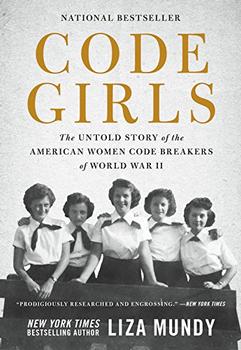Summary | Excerpt | Reading Guide | Reviews | Beyond the book | Read-Alikes | Genres & Themes | Author Bio

Benjamin Johncock's debut, The Last Pilot, relays the experiences of Jim Harrison, a test pilot for the U.S. Air Force in the years following World War II and continuing through the early 1960s into the first years of the space race (see 'Beyond the Book'). As Harrison's career advances, he experiences a tragedy that impacts his life and work in ways he never anticipated.
The novel explores two very different plot lines. Much of the book concerns the birth of the U.S. space program, and the author takes great pains to educate readers about the men who risked (and sometimes lost) their lives in advancing their country's control of the air. (During the 1950s, he informs us, test pilots died at an average of one per week.) These sections are exciting and at times harrowing as Harrison comes close to death on several occasions. Johncock realistically portrays the camaraderie between the pilots, their bravado often masking the knowledge that they could well have died but for their quick actions and quite a bit of dumb luck. Also convincingly drawn are the pilots' wives, who must endure knowing their husbands are employed in an excessively dangerous field.
The other storyline concerns Harrison's relationship with his wife, Grace. In addition to the stresses placed on their marriage by his career, the seismic shifts in their individual worldviews caused by the tragedy they endure dramatically impacts how they interact, causing further tensions. The author's depiction of two people who love each other but are being torn apart by current events – some of which they can control, some of which they can't – is very believable and heartfelt. The scenes between the two are every bit as nail-biting as the test pilot sequences, albeit in a different way, as one simultaneously roots for the couple to remain together while being afraid that the pressures they're enduring are simply too great.
While the overall emphasis of the book is on Harrison – his life, personality, feelings and reactions - the author effectively uses history as a backdrop throughout the novel to paint a complete picture of the era. While the protagonist is pursuing his dreams it seems as if a newsreel is constantly running in the background; events such as the launch of Sputnik, the beginning of the Cold War and the Cuban Missile Crisis occur in the periphery and impact Harrison's career trajectory while never distracting readers from the novel's main focus on the central character. It masterfully centers the action in a very specific time and place without being unnecessarily overt.
Through conversations between his characters, the author brilliantly brings situations to life. It did, however, take me several pages before I adjusted to the style. As in real life, sentences exchanged between characters are clipped and not necessarily grammatically correct:
She lay in bed, on her side, away from him; arm hooked beneath the pillow. The yellow light from the lamp felt warm. He pushed his face into the nape of her neck, hand resting on her belly.
Hey, he said.
She didn't reply. He kissed her back. He couldn't see her face.
Don't do that.
What?
Stroke my belly. I'm not a genie.
I know, he said.
She sighed. Wish I was, she said.
I know, he said.
I'm sorry, she said, and rolled over. Her eyes, narrow and full, flicked up to his.
It's okay, he said.
I just—
I know.
It'll be all right, he said.
It's fast reading, and once one's "reader's ear" is attuned to the flow of the conversation it seems very natural, if occasionally difficult to determine who's speaking. However, between the short sentences and the lack of punctuation (Johncock is yet another author who doesn't bother with quotation marks) some readers may find the technique too challenging.
Regardless, The Last Pilot is an impressive debut and will earn Johncock many fans, myself included. It's recommended for those interested in the early years of the space race, as well as anyone looking for fine literary fiction about love and loss.
![]() This review was originally published in The BookBrowse Review in August 2015, and has been updated for the
May 2016 edition.
Click here to go to this issue.
This review was originally published in The BookBrowse Review in August 2015, and has been updated for the
May 2016 edition.
Click here to go to this issue.

If you liked The Last Pilot, try these:

by Taylor Jenkins Reid
Published 2025
From the #1 New York Times bestselling author of The Seven Husbands of Evelyn Hugo and Daisy Jones & The Six comes an epic new novel set against the backdrop of the 1980s Space Shuttle program about the extraordinary lengths we go to live and love beyond our limits.

by Liza Mundy
Published 2018
"Code Girls reveals a hidden army of female cryptographers, whose work played a crucial role in ending World War II.... Mundy has rescued a piece of forgotten history, and given these American heroes the recognition they deserve." - Nathalia Holt, bestselling author of Rise of the Rocket Girls
Your guide toexceptional books
BookBrowse seeks out and recommends the best in contemporary fiction and nonfiction—books that not only engage and entertain but also deepen our understanding of ourselves and the world around us.